Cardiff riot: Can lack of opportunities for young people be blamed?
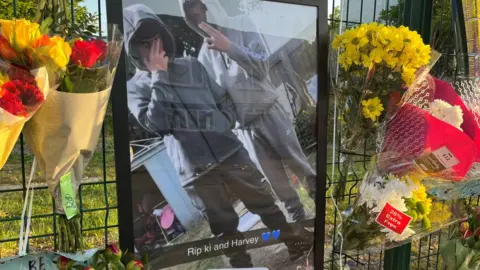 BBC
BBCPeople who work and live in Ely say a lack of opportunities for young people was one of the reasons behind the riot.
Residents, charities and councillors have said the closure of a local boxing gym, a general lack of support and investment were contributory factors.
They have all condemned the violence, adding that the community unfairly gets a poor reputation when residents are helpful and supportive of one another.
Investigations continue into the deaths of the two teenagers and the unrest.
Darren Sullivan was a coach at Highfields Amateur Boxing Club in Ely for nearly a decade, until it closed down in October.
He said the boxing club's closure had a huge effect on the community.
"I just think if there was more going on up here or more for the kids to do, stuff like that wouldn't be happening," said Mr Sullivan.

Ely resident Darren joined the boxing club as a child and over the past 10 years, trained young people in the amateur boxing gym five to six times a week.
The gym was one that produced successful boxers and Welsh titles for consecutive years but the gym suddenly closed.
"It's very frustrating. It's not fair on the kids," said the 37-year-old coach.
"I get parents phoning [asking] me have I got any updates? Do I know if we're even going to open again?" he said.
He said parents "want their kids off the streets" and "kept on the straight and narrow", but the loss of the boxing gym has been "massive".
Recalling the fulfilment boxing provided local young people, Darren said: "As soon as I got there they'd be there waiting for me to open up the gates.
"They loved it there, it gives them a focus, it gives them a dream."
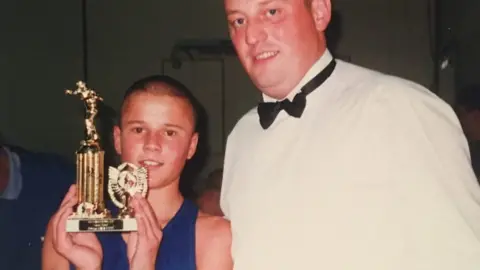
Reacting to the riot, Darren said it didn't come as a huge shock.
"I'm not surprised. People are annoyed, people are frustrated," he said.
"We've got nothing up here, they've got nothing left to do, they're left to run around on the streets," he added.
Many of Darren's feelings are echoed by his mum, Lynda Sullivan, chairwoman of local charity, Ely Garden Villagers.
The community group aims to make Ely a "safer and better place to live", by organising sports events, and volunteering in the community "with the aim of keeping young children and youths off the streets and away from crime and drugs".
She's also worked with local football club Avenue Hotspurs FC for 19 years.
She was not surprised by the scenes on Monday night.
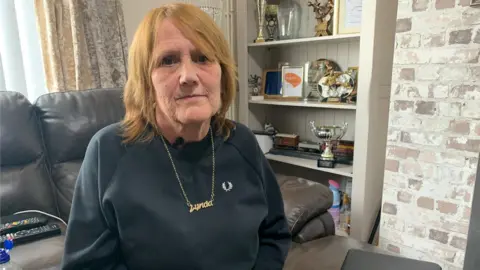
"I think people were expecting something to happen along these lines," said the 57-year-old.
She believes the lack of support and limited opportunities has had a big effect on local young people.
"There was no need for what happened at all. A lot of people got a lot of respect for the police," she said.
"Children need something to look forward to, they come home from school now and ask 'where can we go?' There needs to be more positive stuff within our community.
"I feel sorry for the children growing up. If they've got something to look forward to then they respect."

What do figures tell us about the challenges in Ely, Cardiff?
- Five neighbourhoods in Ely sit in the top 30 for overall deprivation in Wales, as calculated by Welsh government indicators
- About 28% of children were recently estimated to be living in families on relatively low incomes
- Ely has more children eligible for free school meals - 59.1% - than any other community in Wales
- It has the seventh highest proportion of long term sick or disabled people in Wales
- Unemployment has been consistently the highest in the city and among this group, in some neighbourhoods, 39% have never worked and more than half have not in the past 12 months

Councillor Maliika Kaaba, who represents Ely, said the events on Monday were "not reflective of the community" who were hardworking and very tight-knit.
She said that Ely is a "long-standing", "solid" community where some families have lived for generations since the houses were built in the 1930s and 1940s.
"It's very much a community of people who help other people and help one another," she said.
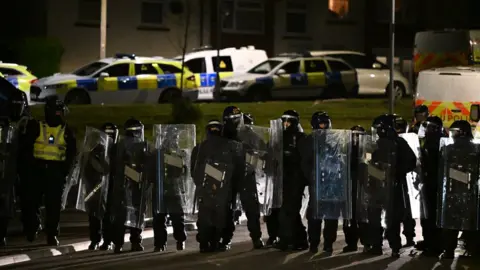 Getty Images
Getty ImagesThe Labour councillor said she went to the street on Tuesday night and spoke to residents who were shocked and saddened by what happened.
She said that the majority of people who lived there were elderly and not involved in the unrest - and were "angry and upset".
"Ely people are proud people", she said, "it gets an unfair reputation", adding that many people in the community support each other.
"If you needed help you could knock on any door and someone would come and help you," she said.
"The perception of Ely is dead wrong," she added, emphasising "what happened is not reflective of the community, they are very hardworking people".
"It is deprived it needs services, no one would deny it needs services," she said, adding there had been investment, and the community had a very good youth centre, and the youth workers were well-known in the community.
"It is really sad for the community. It is tragic for the families."
Ms Kaaba said the community's focus was now on supporting the families.

Russell Goodway is one of three councillors for the Ely ward and was leader of South Glamorgan and Cardiff Council from 1993 until 2004.
He saw "massive funding" into areas like housing and doctors surgeries in Ely following the 1991 riot.
He said despite the investment and support it "hadn't been transformational in terms of people's individual wealth", but said "it's not being poor that triggers violence" and condemned the "mindless" behaviour of rioters.
Police had "reassured" Russell "that no chase had occurred", and he felt "saddened" and "annoyed" that people had "exploited the tragedy to vent their frustrations".
He said most people in the area were "absolutely appalled", as there was usually a "great sense of community" in Ely, and added that he believed many of the rioters weren't even from the area.
"The tragedy was a trigger and when false rumours are put on social media, which has no substance whatsoever, it then proves to be magnet for people across south Wales to get involved," he said.
He added that people should have "thought of the families of the young boys, and the pain and tragedy they must be feeling".
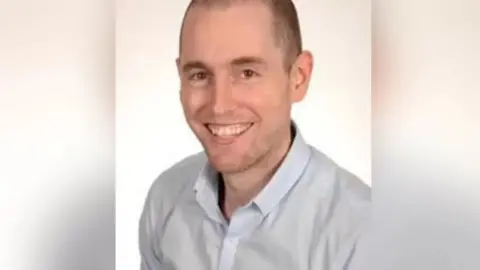
Sociologist Dr Simon Williams, from Swansea University, said psychology and sociology showed that deprivation, distrust and disillusionment in the area could have contributed towards the riot.
He has studied the societal similarities between places and communities where riots have broken out.
"It's important not to condone and justify violence, which of course is never excusable," said the lecturer.
"But I think what we can do is we can look at some of the conditions to help explain why this might have happened.
"More often than not we see riots or community violence occurring in deprived communities, as we saw recently in Mayhill [Swansea].
"Ely is one of the most deprived communities, not just in Cardiff, but in Wales.
"We see for example, that Ely has approximately twice as high unemployment compared to the Welsh average. We also see a much higher proportion of young people who are living in relative poverty," he added.
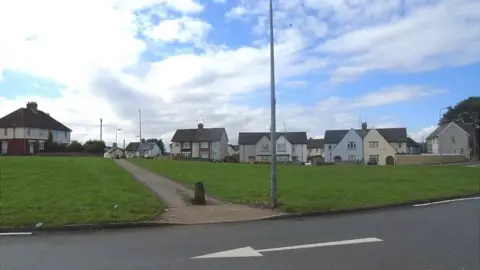
The sociologist said this creates "a sense of inequality" and a feeling of being let down by authorities, the state and by government.
He added that a "gradual decline in confidence and trust in police in the UK and Wales" has happened in the last few years.
Dr Williams studied behaviours and public attitudes during the pandemic and said "young adults in particular are actually quite disillusioned about the future", worsened by Covid-19 and the cost of living crisis.
He believes the more that can be done to reduce these inequalities to understand and to try to help offset and improve matters, the "more likely we are to avoid these kind of things happening in future".
